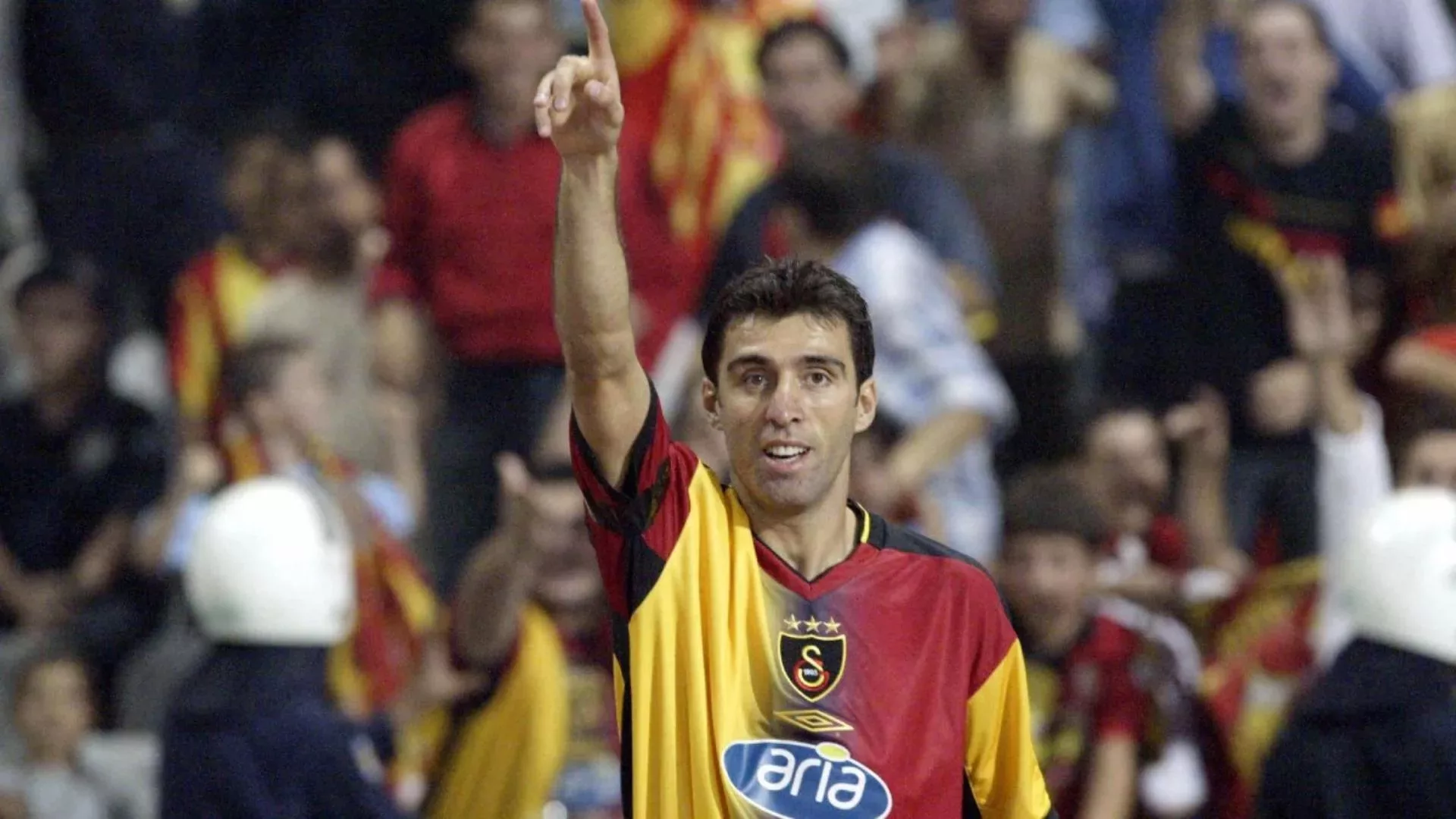Hakan Şükür’s Extraordinary Journey: From Turkish Football Legend to Political Exile
Becoming a national hero is no easy task. Losing that status is a lot simpler. Hakan Şükür, a name synonymous with Turkish football glory, is one of his country’s greatest-ever strikers. In 112 games on the international stage, he netted 51 goals, a record for the Turkish national team. However, now, even just speaking his name in his home country could get you in trouble.
Many football fans on the internet have coined the phrase “Keep politics out of football.” Even Gary Neville has created a show titled “Stick to Football,” but when it comes to this story, it is at the very centre. Once a man idolised by many Turks, Hakan Şükür’s venture into the political landscape would ultimately be his downfall. Born and raised in his home country, Şükür can no longer return to the place where he spent 18 seasons of his 21-year career. If he does, he risks a life behind bars.
This is the story of how Hakan Şükür went from a footballing hero to a political pariah.
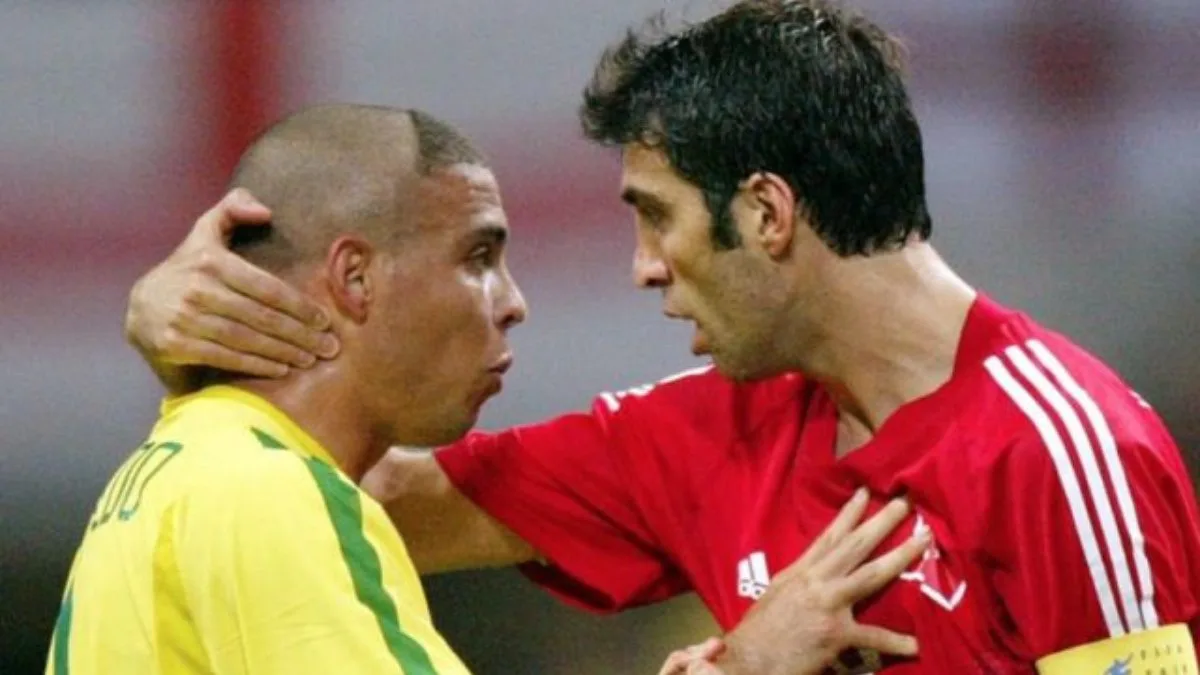
Early Days on the Pitch
Şükür’s story begins in his hometown. Born in Sapanca, Sakarya Province, he would go on to play for the Sakaryaspor youth team. Like many young footballers, he had to work his way up to the first team, and at the age of 17, his hard work paid off. Shortly after his 17th birthday, the Turkish striker would make his first professional appearance, which would turn out to be the beginning of an over 600 game career.
Not long after, he would go on to score his first goal in the Turkish Süper Lig, and it was an important one. On February 26, 1989, Sakaryaspor played Eskişehirspor. With the match tied at 2-2, Şükür entered the pitch. As you probably suspect from how this story is being laid out, he scored the winning goal.
The forward scored a further 18 goals in Turkey’s top flight over three seasons at this local club, playing a total of 41 games. His efforts would attract the attention of national giants Galatasaray.
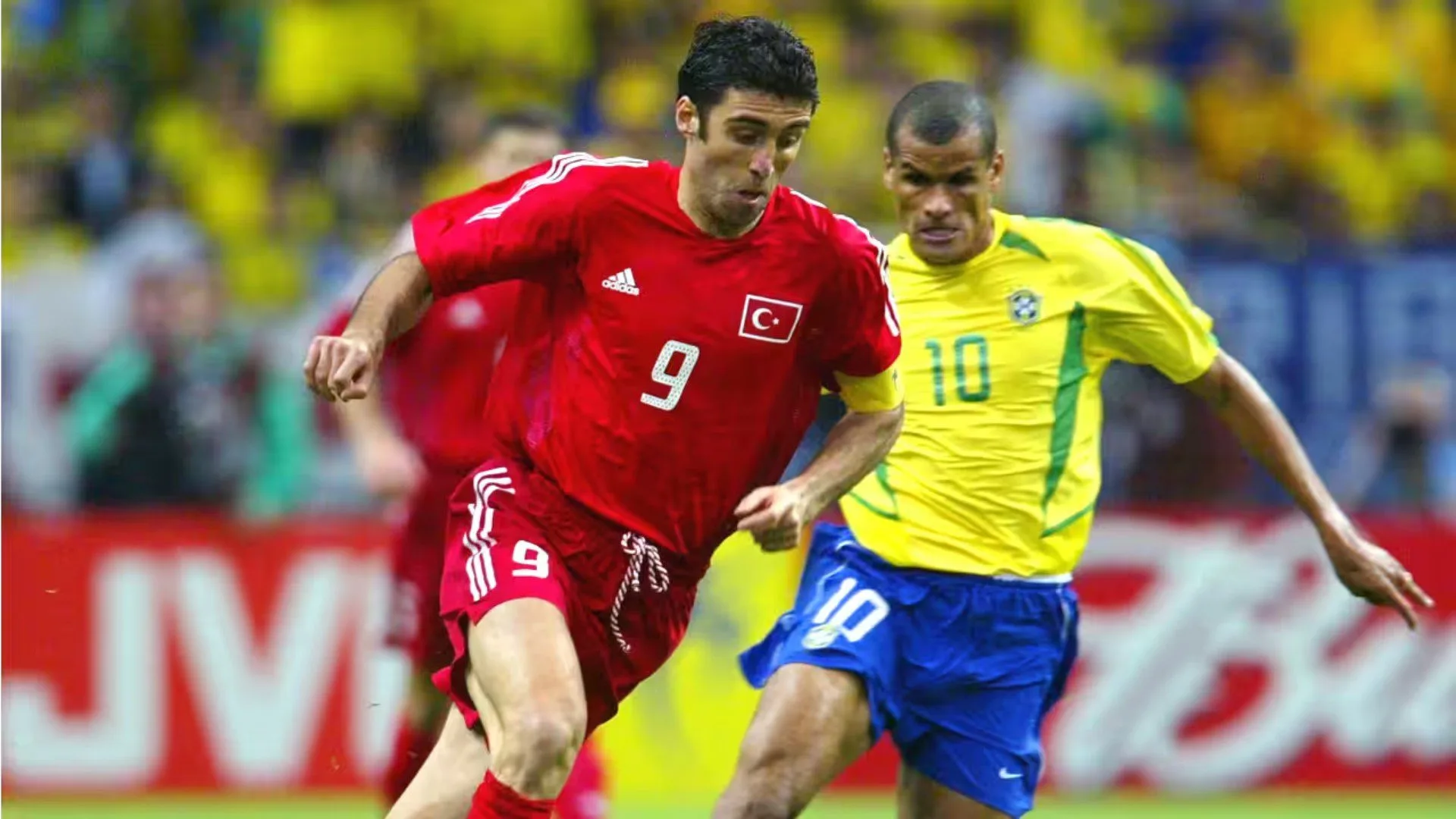
Glory on the International Stage
Now, at one of Turkey’s biggest clubs, Şükür had more eyes than ever on him. The pressure was not a distraction, nor did it play any role in his time at the Istanbul club.
Scoring 19 goals in 30 games in his first season, then going on to score 16 and 19 in the next two, the striker earned himself the nickname “Bull of the Bosphorus.” He scored a total of 54 goals in 90 league matches.
His contributions would go on to help Gala win two league titles (1992/93, 93/94) as well as a Turkish Cup (92/93).
It wasn’t long before other clubs were noticing his talents. In 1995, Serie A side Torino secured his signature, but only for six months. After failing to adapt and scoring just one goal in five appearances, Şükür returned to Galatasaray.
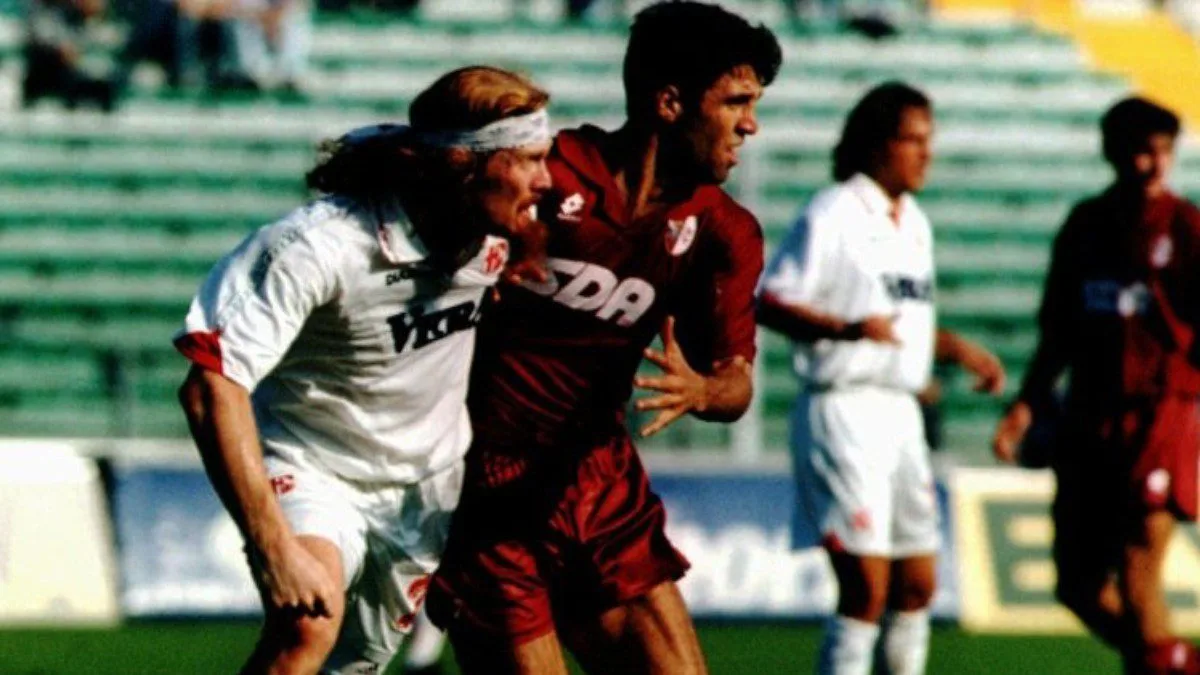
His second stint was even more successful. This time, he scored 108 goals in 158 matches. Perhaps his biggest football achievement came at this time. In the 1999/2000 season, Şükür was part of the Galatasaray squad that beat Arsenal on penalties in the UEFA Cup, now known as the Europa League.
The game ended 0-0, but from the 12-yard spot, the striker dispatched his penalty. It was a strong performance from the Turks, who faced off against an extremely strong Arsenal side.
The likes of Thierry Henry, Patrick Vieira, Tony Adams, Ray Parlour, and Dennis Bergkamp all started the game.
Once again, his performances attracted attention from Italy, leading to his move to Inter Milan. However, he would play second fiddle to Ronaldo “O Fenômeno” Nazário and Christian Vieiri. After two seasons and only 24 league appearances, he moved to Parma.
He struggled to make an impact once again, scoring three goals in 15 games. Hakan Şükür would then try his luck in England, signing for Blackburn Rovers, but could never return to the same form he showed for Galatasaray.
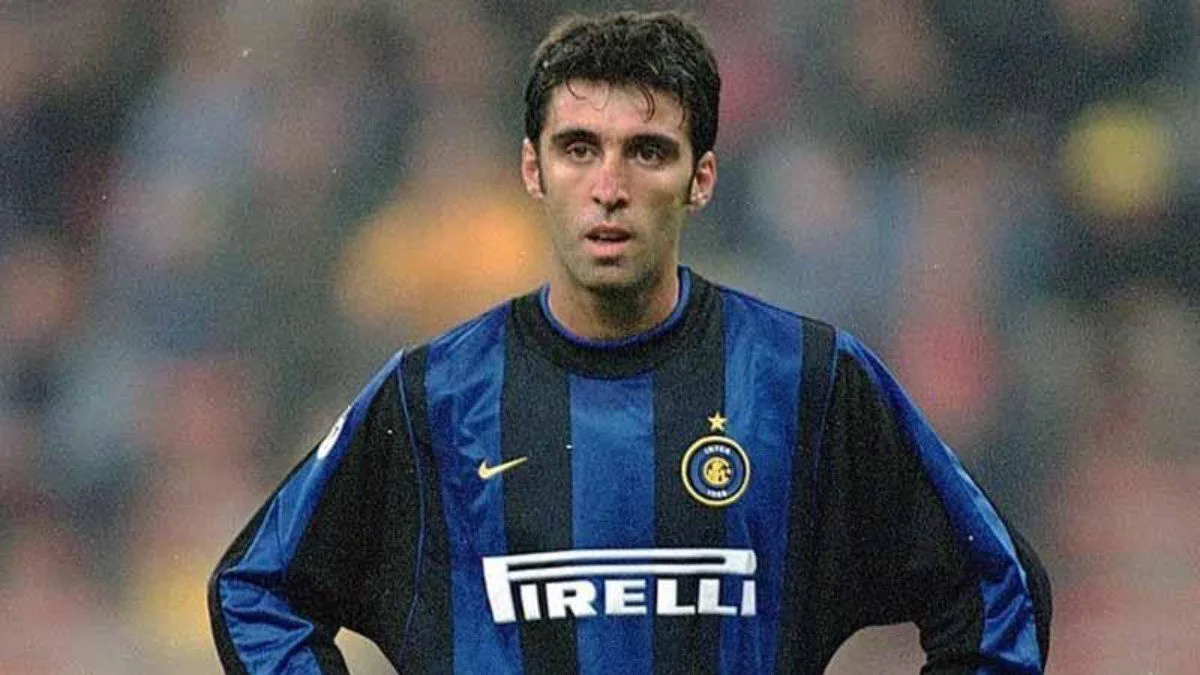
With no luck elsewhere, he decided to return to the club where he had the most success. Hakan Şükür signed for Galatasary for the third time in 2003.
This time, his impact wasn’t quite as big, but impressive nonetheless. He scored 55 goals in 146 games, winning three trophies in the process. After winning the league in 2007–08, Hakan Şükür called time on his career.
He ended it with the following achievements in club football:
- Top Scorer of Turkish League of All Time: 249 goals
- Top-Scoring Turkish Player in Champions League: 22 goals
His story for his national team is just as impressive.
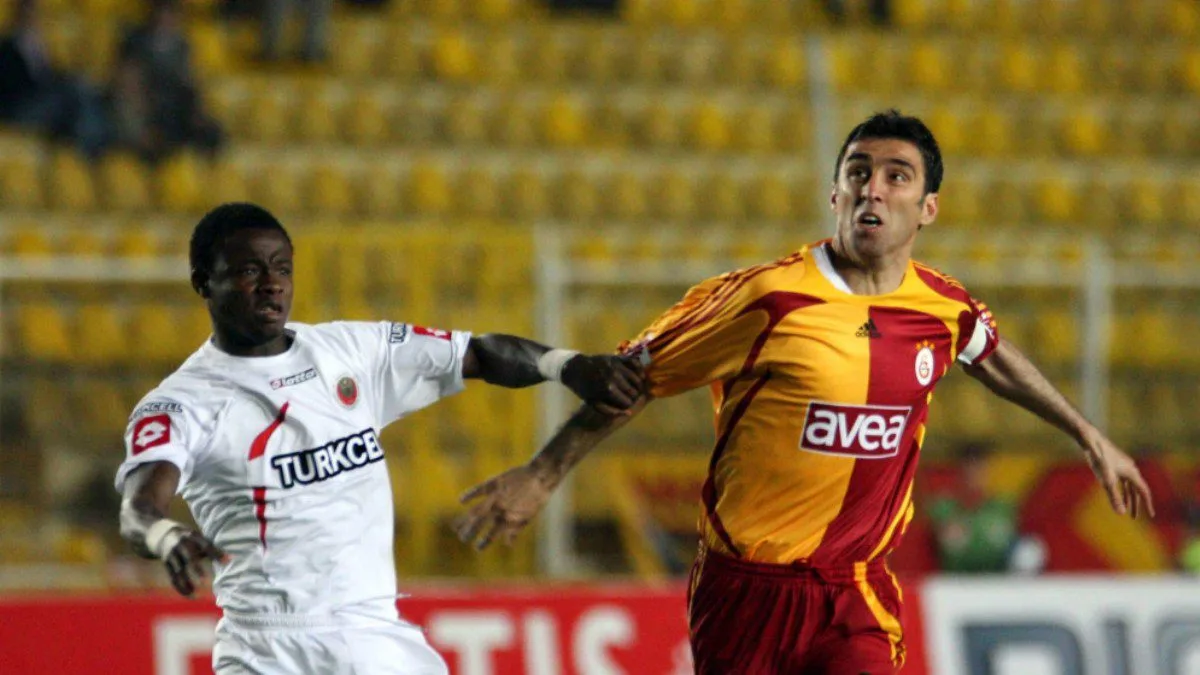
The National Team
Hakan Şükür is mostly known worldwide for his performances for the Turkish national team. Even if you had never heard of him, you would likely have seen his historic goal.
In the 2002 World Cup Third-Place Playoff, Şükür scored the opening goal in 10.8 seconds, setting the record for the fastest goal in World Cup history. It is a record that still stands today.
However, his journey for Turkey began when then-manager Sepp Piontek gave him his international debut against Luxembourg in March 1992. It wasn’t long until he scored his first goal. In the very next game against Denmark, Şükür netted his inaugural goal. Ultimately, he scored six goals in his first 11 appearances.
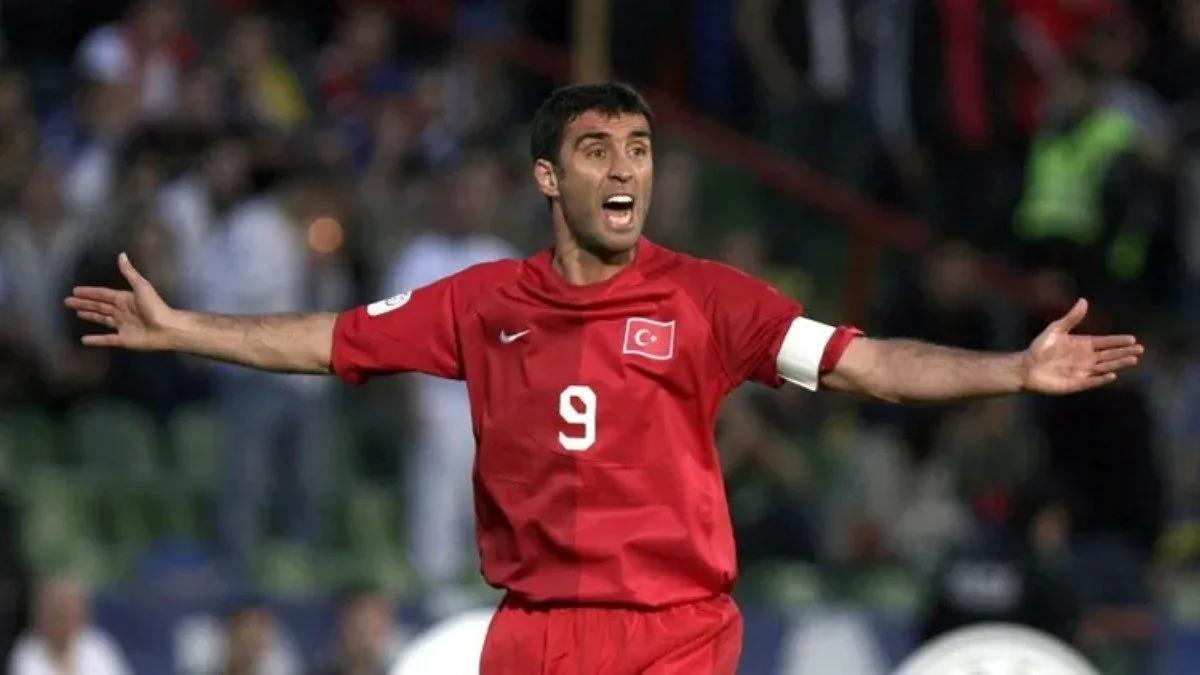
He helped his side qualify for EURO 1996. However, Turkey failed to deliver, picking up zero points and zero goals throughout their three matches.
Goal-scoring form returned for Şükür in the 1998 World Cup qualifiers. The striker scored eight times, including four in one game against Wales, which resulted in a thrilling 6-4 match. Unfortunately, his side failed to qualify for the tournament.
Next, it was EURO 2000, where Turkey got to the quarterfinals in a run that saw them beat co-hosts Belgium 2-0, with Şükür scoring both.
Then Şükür etched his name into the history books, scoring his incredibly quick goal against South Korea and guiding Turkey to an impressive third-place finish.
That would spell the end of Şükür’s achievements for The Crescent-Stars. He was not selected for the EURO 2008 squad and ultimately retired from football altogether. His last game was on October 17, 2007, in a 1-0 loss to Greece.
Transition from the Field to Politics
After his football career, Hakan Şükür would have a stint in punditry, but his second career would really be in politics. On June 18, 2011, the former footballer won the Turkish elections and joined as a Member of Parliament in the Grand National Assembly of Turkey, representing the 2nd electoral district in Istanbul. He was a member of the current ruling party at the time, which President Recep Tayyip Erdoan led.
Hakan ükür, however, left the Justice and Development Party (AKP) and continued to serve as an independent MP because of his ongoing ties to the Fethullah Gülen-led Islamic Gülen movement. The decision by the Turkish government to forbid cram schools, largely led by Gülenists, was the final straw for Şükür and the main reason he defected from the AKP.
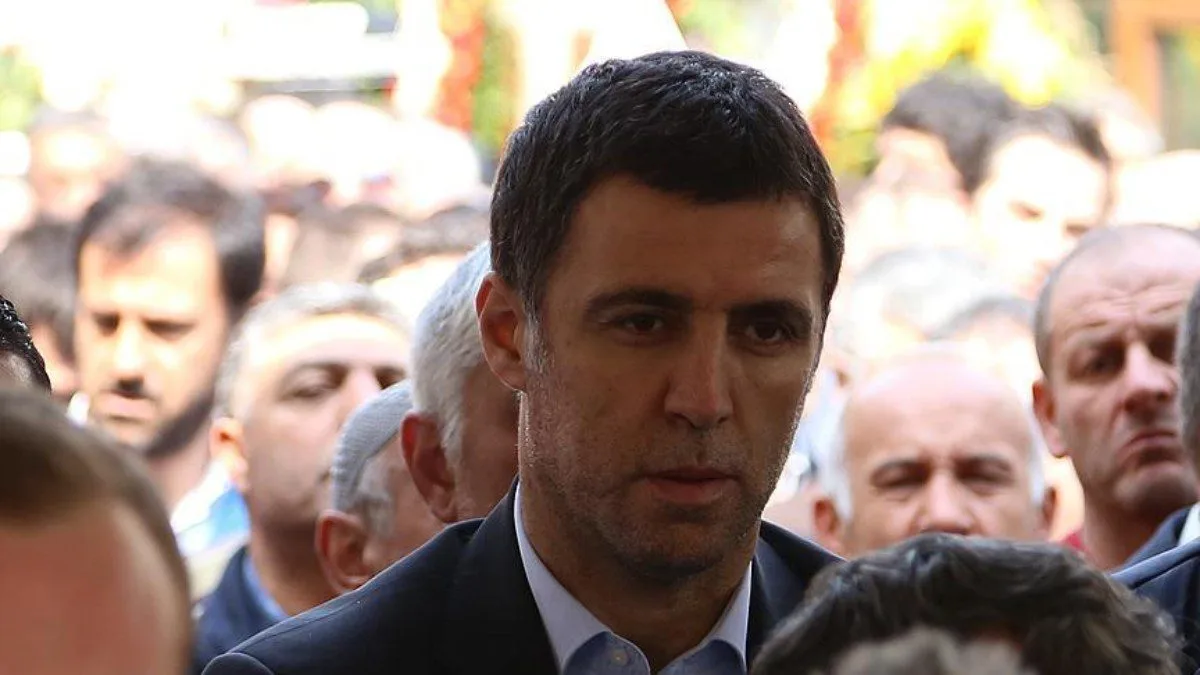
Exile and Arrest Warrant
Despite leaving the party, it was not this that would land the notorious striker into trouble. After posting tweets that were deemed to be insulting to President Erdoğan, the former Galatasaray icon was charged under Article 299 of the Turkish Penal Code in February 2016. He was later put on trial in absentia and was found guilty in June 2016.
Then, just a couple weeks later, a military coup would occur in the country, with the blame being put on Gülenists. The coup d’état would ultimately fail, and punishments would be put down on Gülen sympathisers.
Over 100,000 people lost their jobs, while around 50,000 people were arrested. Among the chaos, Hakan Şükür’s arrest warrant was drawn up in August of that same year. He had the chance to denounce the Gülen movement and maintain his freedom in his home country, but opted against it.
Instead, he escaped to the U.S., where he still remains.
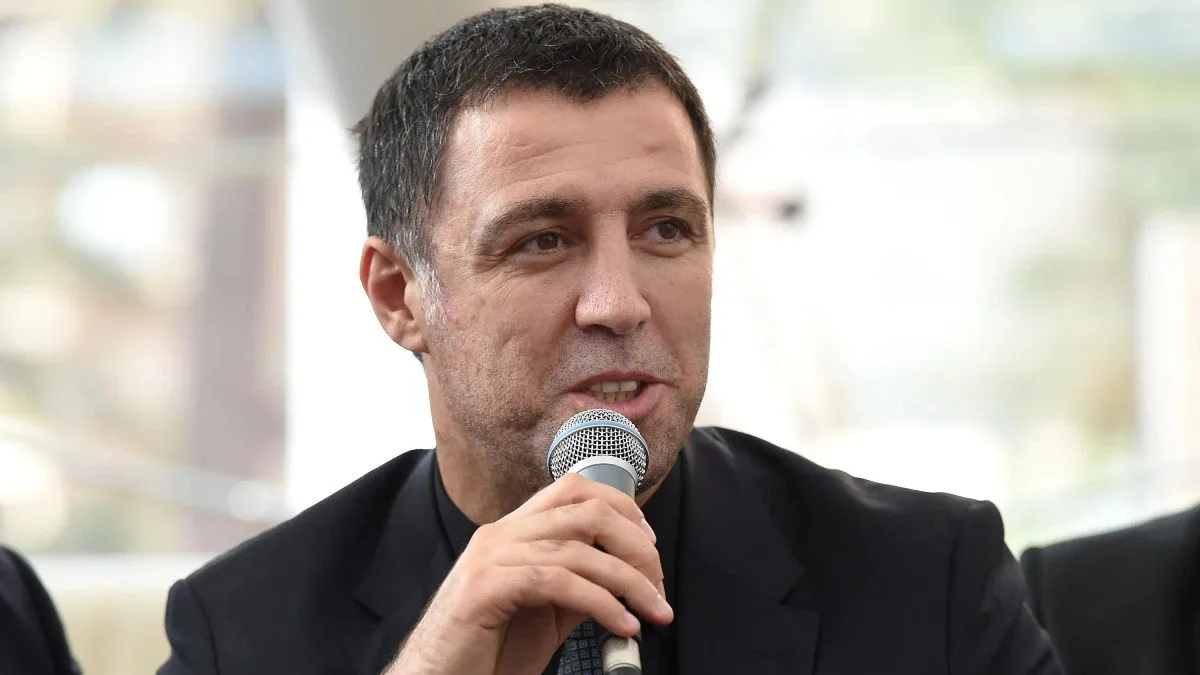
Life in Exile For Hakan Şükür
After making his way to California, Şükür opened up a café but said that after strange men entered, he gave it up.
Now, he works as an Uber driver. Far from the life of riches that a footballer of his status would have. Even now, his name is a touchy subject in his place of birth. During Turkey’s coverage of the 2022 World Cup, commentator Alper Bakircigil mentioned the historic 10.8-second goal by Hakan Şükür after Hakim Ziyech netted a fourth-minute goal.
Bakircigil would not feature on commentary duties during the second half and was fired on the same day. Numerous news outlets speculated that they removed him because the broadcaster, TRT, is state-run and mentioned the name of ükür, who is in exile.
From his name being sung in the stands of the Ali Sami Yen Stadium, now known as RAMS Stadium, to his name being censored on Turkish TV, the story of Şükür is one to remember. Maybe keeping politics out of football would have been the right call.
READ MORE FOOTBALL STORIES:
- The History Of The Super League, And The Greed Behind It
- How Twitter Made Fabrizio Romano Famous
- The Heavy Metal Footballer: Dario Dubois


